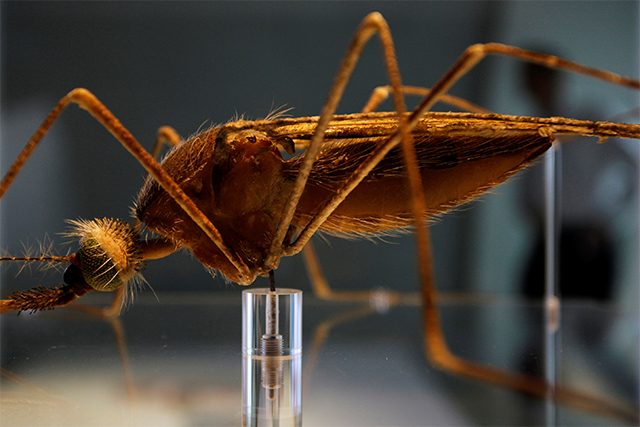
After months of trying to contain the coronavirus pandemic, officials in Michigan intensified their fight on Thursday against a different and potentially deadlier disease: Eastern equine encephalitis, a brain infection transmitted by mosquitoes.
The Michigan Department of Health and Human Services said Thursday it had ramped up nighttime aerial anti-mosquito spraying in high-risk areas of western Michigan after announcing it suspects that 28 horses and one human have contracted the disease in 11 counties in the state.
Eastern equine encephalitis (EEE) is present across the eastern United States as well as parts of the Midwest, but is generally rare in humans, according to the Centers for Disease Control. It kills up to 30% of people infected with it and also causes long-term neurological damage. As of Sept. 9, only 5 people in the United States had been diagnosed with the disease in 2020, CDC data showed. That number does not include the Michigan case.
Officials were scrambling to respond quickly to the potential outbreak. Planes began spraying Merus 3.0, a plant-based insecticide, over parts of the state Wednesday night, the Michigan health department said in a statement. The state sprayed the pesticide over more than 500,000 acres in 2019.
An automated voice message at the state health agency informed residents they would not be allowed to opt out of the spraying. Local officials in the past have voiced concern over the potential effects of the spray, including its ability to harm honeybees. Michigan last year allowed residents to opt out of spraying.
The state said that “health risks are not expected” from the spray when it announced treatment plans on Monday. But it warned residents to cover ornamental fish ponds, as well as consider canceling outdoor activities to mitigate the risk of mosquito bites.
—Reporting by Mimi Dwyer; editing by Bill Tarrant and Cynthia Osterman





